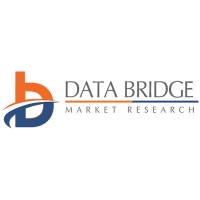
ESG Reporting Tools: Driving Transparency and Sustainability in Modern Businesses
Introduction to ESG Reporting Tools
In today’s business world, sustainability and corporate responsibility have evolved from optional initiatives into essential strategic pillars. Companies across industries are increasingly expected to disclose their environmental, social, and governance (ESG) practices to stakeholders, investors, and regulatory bodies. ESG reporting tools play a critical role in streamlining this process, ensuring data accuracy, transparency, and compliance. These tools help organizations collect, analyze, and present non-financial performance data in a structured way, allowing for better decision-making and stronger reputational value.
Understanding ESG Reporting
ESG reporting is the practice of disclosing information about a company’s sustainability and ethical practices. It focuses on three main aspects: environmental impact, social responsibility, and corporate governance. Investors, customers, and employees use ESG reports to evaluate a company’s commitment to sustainability and ethical operations. However, managing ESG data manually can be complex and time-consuming, especially for large organizations with global operations. This is where ESG reporting tools come into play, offering automation, accuracy, and actionable insights.
Why ESG Reporting Matters for Businesses
ESG reporting is no longer just a trend—it’s a necessity. Governments and regulatory authorities around the world have introduced frameworks like the EU’s Corporate Sustainability Reporting Directive (CSRD) and the Task Force on Climate-Related Financial Disclosures (TCFD). These regulations require businesses to provide verifiable data on their sustainability performance. Beyond compliance, ESG reporting builds trust with investors and consumers. It helps organizations identify risks, optimize resource usage, and strengthen their brand image. Companies that adopt robust ESG reporting tools position themselves as transparent and future-ready enterprises.
Key Features of ESG Reporting Tools
Modern ESG reporting tools are designed to simplify complex data processes. They come equipped with a variety of features tailored to help companies collect, analyze, and communicate sustainability data effectively.
Data Collection and Integration
ESG tools integrate with existing enterprise systems, such as ERP, HR, and financial software, to automatically gather data from various sources. This minimizes manual input errors and ensures that all relevant sustainability data is captured in real-time.
Automated Reporting
Automated reporting features allow organizations to generate sustainability reports aligned with global standards such as GRI (Global Reporting Initiative), SASB (Sustainability Accounting Standards Board), and CDP (Carbon Disclosure Project). These templates simplify the reporting process and ensure regulatory compliance.
Data Analytics and Visualization
Advanced ESG tools offer dashboards and analytics capabilities that help companies visualize data trends. Through charts and graphs, decision-makers can identify areas of improvement and set actionable sustainability targets.
Benchmarking and Performance Tracking
Organizations can compare their ESG performance against industry peers. This benchmarking feature enables businesses to understand where they stand and what improvements are necessary to meet or exceed industry standards.
Audit and Verification Support
ESG reporting tools often include built-in audit trails and verification mechanisms that support third-party validation. This enhances report credibility and ensures that the disclosed data meets the required accuracy standards.
The Role of ESG Reporting Tools in Corporate Strategy
ESG reporting tools are not just compliance instruments—they are strategic assets. By leveraging these tools, organizations can identify operational inefficiencies, minimize environmental impact, and promote social welfare initiatives. A well-integrated ESG strategy helps businesses align sustainability with profitability. When used effectively, ESG tools become a decision-making engine that connects sustainability goals to measurable business outcomes.
Benefits of Using ESG Reporting Tools
Implementing ESG reporting tools brings numerous benefits across the organization.
Improved Data Accuracy and Efficiency
Manual ESG reporting often leads to data errors and inconsistencies. Automation through reporting tools ensures accuracy, saving time and reducing administrative overhead.
Regulatory Compliance Made Easy
With ever-changing sustainability regulations, staying compliant can be challenging. ESG tools are updated regularly with the latest frameworks, ensuring businesses always meet reporting obligations without manual intervention.
Enhanced Stakeholder Confidence
Transparent reporting builds trust among investors, employees, and customers. Companies using ESG tools can showcase verified data that reflects genuine sustainability efforts.
Cost Reduction and Resource Optimization
By tracking resource consumption and emissions, ESG tools help companies identify cost-saving opportunities. Optimizing energy usage, waste management, and resource allocation leads to both environmental and financial benefits.
Competitive Advantage
In an era where sustainability influences consumer behavior and investment decisions, ESG reporting can differentiate a brand from competitors. Businesses that demonstrate accountability and transparency attract long-term investors and loyal customers.
Popular ESG Reporting Tools in the Market
Several platforms have emerged as leaders in ESG reporting and sustainability management.
Workiva
Workiva offers comprehensive ESG reporting capabilities with real-time collaboration, automated workflows, and integration with popular standards. It’s widely used by enterprises for compliance and investor reporting.
Diligent ESG
Diligent ESG focuses on data centralization, performance tracking, and benchmarking. It provides an intuitive dashboard for ESG professionals to manage disclosures efficiently.
SpheraCloud ESG
SpheraCloud combines sustainability data management with risk assessment, helping organizations align ESG goals with business performance.
Novisto
Novisto emphasizes data-driven ESG reporting. It enables companies to streamline reporting processes while providing valuable insights into sustainability strategy development.

